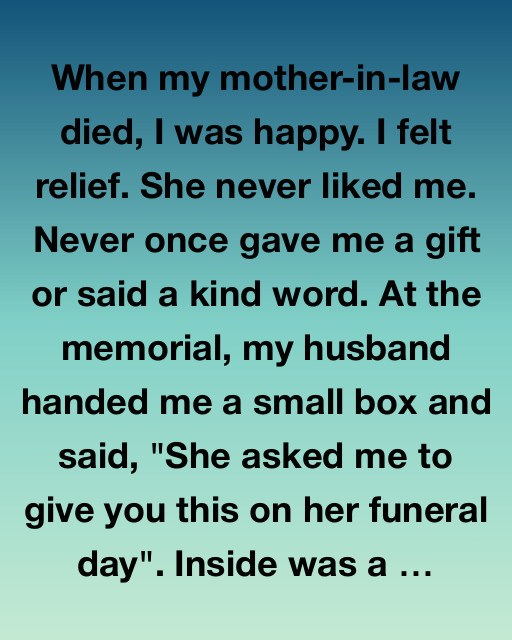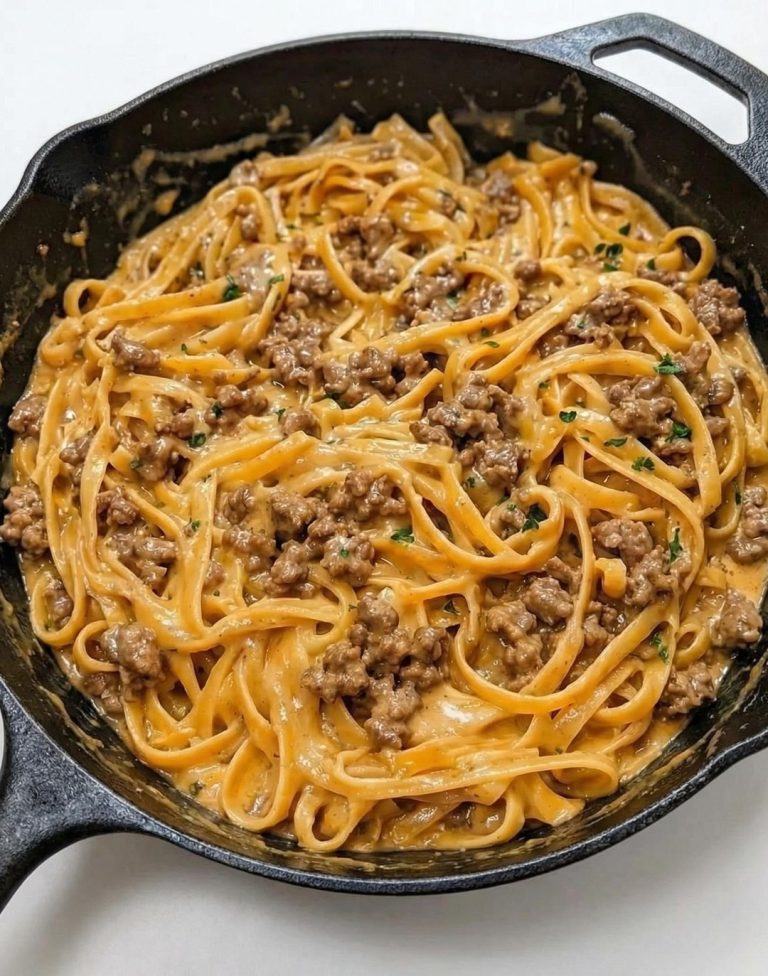
When my mother-in-law died, I was happy. I felt relief.
She never liked me. Never once gave me a gift or said a kind word.
At the memorial, my husband handed me a small box and said, “She asked me to give you this on her funeral day.”
Inside was a delicate gold locket. My hands trembled as I opened it. Inside were two tiny photos: one of my husband as a child, and the other—shockingly—was of me, taken years ago at our wedding.
I gasped.
“She kept this?” I whispered.
Tucked beneath the velvet lining was a folded piece of paper. With shaking fingers, I opened it.
The note read:
“I was cruel because I was afraid. Afraid my son would love you more than me. I pushed you away to protect myself, but in doing so, I lost the chance to know the woman who gave him happiness. This locket is yours now. Please forgive me, if not for me, then for him.”
Tears stung my eyes. My chest ached with a confusing mix of anger, sorrow, and unexpected compassion.
For years, I had carried the weight of her rejection. And now, when it was too late for reconciliation, she handed me the truth.
I clutched the locket to my chest. My husband put an arm around me and whispered, “I think, in her own way, she loved you.”
And for the first time, I allowed myself to believe it.
I slipped the locket around my neck, still shaken. But something about the box felt heavier than it should. I tilted it, and a second, smaller envelope slid out.
My husband frowned. “What’s that? I didn’t see it before.”
With trembling fingers, I opened it. Inside was a document, neatly folded. My heart stopped when I read the first line:
“Last Will & Testament – Addendum.”
It stated that a portion of her estate—specifically, the house she had refused to let me step foot in—was being left to me. Not to her son, not to her other relatives. To me.
My husband’s jaw dropped. “She never told me…”
At the bottom of the page, written in her sharp, spidery handwriting, were words that hit harder than any slap she’d ever given me with her silence:
“For the years I denied you entry into my home, I now give it to you. Take care of it, and of him. My son chose well, even if I couldn’t admit it until the end.”
I sank into the nearest chair, locket in one hand, will in the other. The woman I thought despised me had, in her final act, chosen me to carry forward her legacy.
And for the first time, instead of bitterness, I felt peace.
Epilogue
Weeks later, I stood in the doorway of the house that once kept me out. The air still smelled faintly of lavender, her favorite scent. Dust lined the shelves, but the walls carried generations of stories.
Lucy, my daughter, ran through the halls, her laughter bouncing off the old wood. My husband followed, smiling in a way I hadn’t seen since before the funeral.
I touched the locket at my neck, whispering, “I hear you now.”
The house didn’t feel like a burden—it felt like an invitation. Not just to heal, but to rewrite the story she and I never got to finish.
And as the sun spilled through the stained-glass window in the stairwell, I realized something: Sometimes love doesn’t arrive with kind words or open arms. Sometimes it comes late, wrapped in silence, tucked inside a box… waiting for you to be strong enough to open it.
“Some gifts of love arrive too late to be spoken—but never too late to be felt.”



